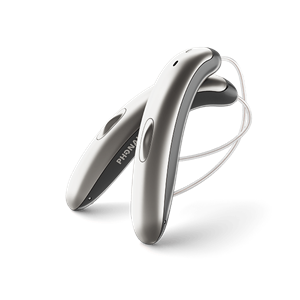Help for Ringing in the Ears – 7 Natural At-Home Solutions | Connect Hearing
_copy.png?branch=web_prod)
Help for Ringing in the Ears – 7 Natural At-Home Solutions | Connect Hearing
10 min.
Publication Date: October 20, 2021
If you've ever experienced ringing in your ears, you know how annoying it can be until it stops. Maybe you were at a loud concert or near a big airport and the loud noises left your ears feeling sore, buzzing, or hissing.
What happens if that ringing in your ears occurs intermittently, or never stops?
For some people, that annoying humming comes and goes randomly. For others, it's triggered by certain sounds or stimuli. Yet there are still others, that have buzzing in their ears on a constant, neverending basis. It can be maddening.
What's Causing the Ringing?
Ringing in the ears, or Tinnitus, can be caused by a number of things and, if left untreated, the constant sound can lead to situational depression and anxiety.
These can be some of the things that can exacerbate ringing in the ears:
- Age-related hearing loss - sometimes it's just a part of the aging process
- Build-up of earwax
- Head injury or trauma
- Damage to the inner ear from loud, sustained noise
- Ear infection
- TMJ has been shown as a direct contributor to tinnitus
- Ménière's Disease, which can also cause vertigo or dizziness and leads to permanent hearing loss
- Hearing aids use
Common Triggers for Intermittent Ringing in the Ears
If you experience the constant rumbling, there is often a trigger that precedes it. If you can identify the triggers, one solution may be to avoid the situation as much as possible.
Triggers are different for everyone but can include:
- Exposure to loud noises, like airplanes or construction
- Some prescriptions or over-the-counter medications like aspirin (although aspirin in moderation may help as an anti-inflammatory)
- Lifestyle choices, like:
- smoking
- alcohol
- poor food choices
Sometimes triggers can't be avoided or you are experiencing a high-pitched buzzing or loud sounds and hissing without being around triggers. In those cases, here are some home solutions that you can try prior to seeing an audiologist.
Natural Solutions for Ringing in the Ears
In Closing
For tinnitus sufferers or people with noise-induced hearing loss, the constant ringing in the ears can become untenable. Try these natural, at-home solutions and you may find the perfect solution or combination of answers for your ears. If your symptoms worsen or persist, you may want to seek a consultation with an audiologist or other healthcare provider.
Contact us to learn more about hearing loss and hearing-related options or visit us at www.connecthearing.ca
Author
Connect Hearing Canada



